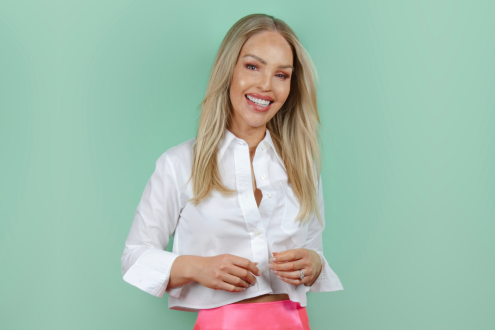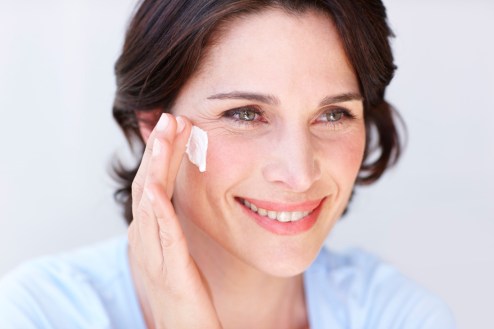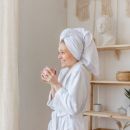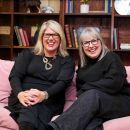Q&A: Lisa Bronner
Green make-up artist Lou Dartford speaks with Lisa Bronner of organic, fairtrade and sustainable personal care brand Dr Bronner's
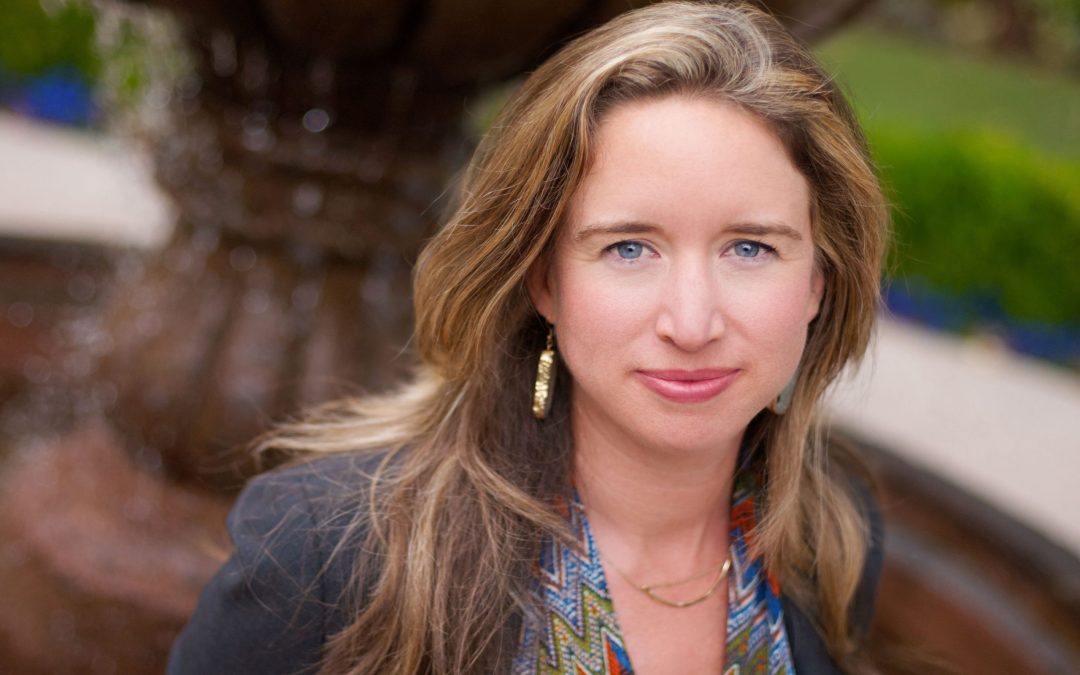
How did your green journey begin?
The specific kicking off point for my green journey came one day when my second son was two-years-old. I was cleaning outside with a spray bottle of a very common conventional cleaner. Unbeknownst to me, my son had come up behind me and snagged the cleaner and sprayed it directly into his mouth. I panicked and called our poison control hotline. The fellow on the probe was not very helpful.
Since there is no mandatory labelling on cleaning products and formulations are proprietary, he had little more idea of what was in the spray than I did. I remember that he asked me, ‘How many sprays did my son ingest?’ Like I knew how many times he had squeezed that trigger. The fellow on the phone said, ‘Well, if it was just one or two sprays, he’s probably fine, but more than that, and he needs medical attention. Keep an eye on him.’
It turns out my son suffered no ill effects, but it started me thinking about what on earth I was bringing into my home and using on a regular basis. As I began researching ingredients in common cleaning products and realizing how truly dangerous and toxic they are, I knew I could do better for my family. That’s when I began the conversion to green cleaning solutions for my home and personal care.
Your family are pioneers when it comes to organic, fairtrade and sustainable personal care but what came first and is one easier to achieve than the others?
We were certified organic in 2003, however, just because an ingredient is organic it doesn’t mean that the farmer that grew it or the worker that processed it was treated fairly. So we then made the move in 2007 to become fairtrade as well – this is harder to maintain.
For example, we travelled to one place that was meant to be fairtrade but found that the standards weren’t being upheld so we had to pull out of using them. We just couldn’t find enough fairtrade coconut oil to fulfil our needs so we set up our sister company Serendipol in Sri Lanka, following a relief effort after the Tsunami. The project has grown from strength to strength with the farmers becoming certified organic as well.
Sustainability needs to be at the core of everything, it can’t just be something that you do or think about afterwards. For example at Serendipol nothing is wasted; all parts of the coconut are used whether it is for organic compost that goes back into the ground, or used in mattresses or for animal feed. Even the coconut husks are burnt to create energy.
What does sustainability mean to you?
Leaving the Earth better than we found it.
There are so many factors to consider when thinking about sustainable business practises, how do you decide what to tackle first?
We think about what ingredients we use the most of and then take it from there, we’re working our way through the list!
The overuse of palm oil is causing massive environmental issues, can you please tell us about your sustainable palm oil project?
Our palm oil is grown in Ghana and we are using areas that have already been depleted so are regenerating and building them back up. Most of the work force is women. The 10% Fairtrade premium paid by Dr Bronner’s goes back into the community and they can petition for what they would like the money to be spent on.
For example, we recently built a maternity ward onto an existing hospital.
What has been your biggest achievement to date from a work point of view?
My biggest achievement to date work-wise is the number of people I’ve been able to connect with through my blog. People are so thirsty for reliable information and I am proud that Dr. Bronner’s and our whole family has been able to establish ourselves as a source for this.
My blog has had more than 4 million views.
Can you please give us your top tips for living a more sustainable life and greening our beauty regime?
Mindful purchasing is key. Everything that comes into the house goes back out again at some point. Really think about what you are buying and whether you really need it or not. Poor quality products will break even quicker so will need replacing more often.
Don’t buy things for pretty packaging – do the products really work? Otherwise they can just end of sitting on shelves doing nothing. Simplify your routine, and choose products that mulit-task – this reduces cost and waste. This also makes it easier to keep track of all the different ingredients that you are applying to your skin.
I use coconut oil as my make-up remover, shaving cream, as a hair mask and make it into a sugar scrub for my body.
Your liquid castile soaps are famed for having multiple uses – can you give us 5 of your favourite ways to use them in your beauty regime.
1. The tea tree one is amazing as a cleanser for anyone suffering from adult onset acne, roscea or eczema. The first few times you use it, it will feel a little tight so use a lightweight moisturiser, I saw results in two weeks after trying so many other things.
2. As they are three times more concentrated than other liquid soaps, they are excellent for removing stubborn mineral sunscreen at the end of the day (and cleaning dirty children).
3. The peppermint one is brilliant as a foot soak before a pedicure.
4. Clean your make-up brushes with them.
5. Wash your hair with them – you will need to use a rinse afterwards to help balance the PH as soap is more alkaline than our hair.
Top three tips for a cleaner, greener home..
1. Read the ingredients on your house cleaning products and find out what they mean. If this information isn’t readily available, that’s a red flag right there. An excellent resource is the Environmental Working Group’s Healthy Cleaning Guide. What you’ll find is that the most deadly cleaning products we have in our homes are conventional drain cleaners, toilet bowl cleaners, and oven cleaners. They eat through anything, including us. Toss those out first.
2. Make your own cleaning solutions so that you know exactly what’s in them and that they’re safe. Use things like vinegar and simple soaps and bicarbonate of soda. (Don’t mix vinegar and soap though – it’s not dangerous but they do react with each other and form a clotted mess.)
3. Simplify the number of cleaners you use around the house. This makes it much easier on you and much less expensive. One good homemade all purpose cleaner works in every room of the house.
For more information on Lisa Bronner, visit lisabronner.com

